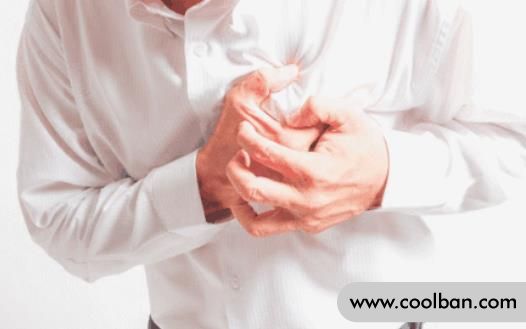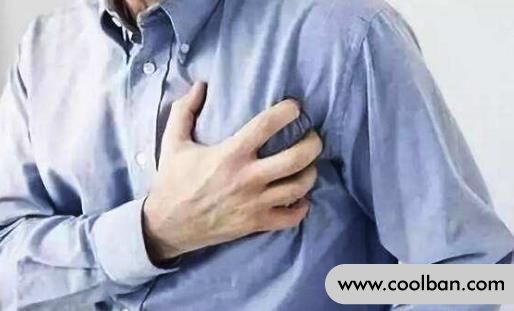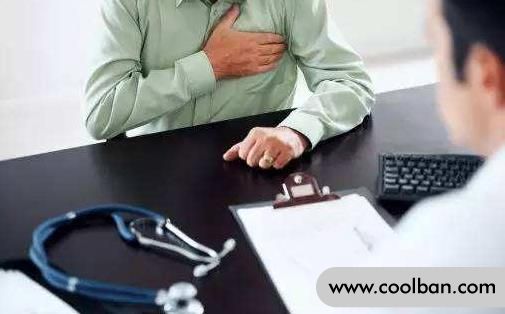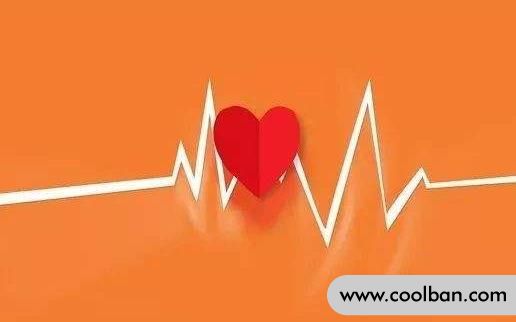What are the risky moments for inducing myocardial infarction?
2022-08-25
Acute myocardial infarction is myocardial necrosis caused by acute and persistent ischemia and hypoxia in the coronary artery of the human heart, complicated by arrhythmia, shock or heart failure, which can often be life-threatening. The disease is most common in Europe and the United States, and about 1.5 million people in the United States have myocardial infarction every year. China has shown a clear upward trend in recent years, with at least 500,000 new cases every year. For such a dangerous disease, it is necessary to understand the risky moment of myocardial infarction with a high probability of occurrence, and timely prevention may prevent the occurrence of myocardial infarction.

10 "Dangerous Moments" That Easily Induce Acute Myocardial Infarction
1. When going to the toilet
When it is time to go to the toilet, middle-aged and elderly people or patients with diseases often have unsmooth stools. When they forcefully defecate, the body's intra-abdominal pressure will increase, and blood pressure will rise rapidly, which will increase the burden on the heart and may induce myocardial infarction. It is recommended that people with coronary heart disease or middle-aged and elderly people should not use excessive force when going to the toilet.
2. When taking a bath
When bathing, the blood vessels of the whole body dilate, and the blood flow to the skin and muscles increases. Many middle-aged and elderly people have cardiovascular and cerebrovascular diseases. Staying in a closed and hypoxic environment for a long time can easily cause brain and heart ischemia and induce myocardial ischemia. infarction. It is recommended that people with coronary heart disease or middle-aged and elderly people should not take a bath when they are full or hungry. The temperature of the bathing water should be equal to the body temperature.

3. The banquet room
It refers to the moment when drinking and drinking, alcohol will cause excitement in the brain, increase the heart rate, increase blood pressure, and induce arrhythmia, which will increase the burden on the heart, especially for middle-aged and elderly people with hypertension and coronary heart disease. Induce acute myocardial infarction; after patients with coronary artery disease eat a lot of high-fat and high-calorie food, the blood lipid concentration suddenly increases, resulting in increased blood viscosity, increased platelet aggregation, and thrombosis, which is easy to cause acute myocardial infarction. It is recommended that people with coronary heart disease or middle-aged and elderly people should not drink alcohol.
4. Between chess and cards
Refers to playing cards, chess and other sedentary moments for a long time, addicted to playing cards, suddenly emotional, blood pressure soaring, causing heart rate and blood pressure to increase, it is easy to induce myocardial infarction. It is recommended that people with coronary heart disease or middle-aged and elderly people should not sit for a long time or be emotionally agitated when playing cards and chess. Appropriate activities are conducive to smooth blood circulation in the body.

5. TV room
Refers to watching TV and other emotional moments. Watching TV for a long time will cause excessive emotional excitement, sympathetic nervous excitement, increase in catecholamines in the blood, increase blood pressure, coronary artery spasm, cause myocardial ischemia, induce angina pectoris or myocardial ischemia. infarction. It is recommended that people with coronary heart disease or middle-aged and elderly people should control the time they watch TV. Do not watch TV for more than half an hour before going to bed, do not watch programs that are too stimulating, and maintain a calm state of mind.
6. Swimming room
Refers to the moment of swimming, when swimming is stimulated by cold water, causing vasospasm, coronary ischemia and myocardial infarction. It is recommended that healthy middle-aged and elderly people should fully exercise their bodies when swimming, and at the same time, they should choose a region with suitable water temperature to avoid the stimulation of low water temperature; it is best not to swim for patients with coronary heart disease.

7. Smoking room
It refers to the moment of smoking, smoking will promote arteriosclerosis and increase the risk of myocardial infarction; on the other hand, smoking will cause coronary artery contraction and spasm, leading to vascular occlusion and myocardial infarction. Smoking is one of the world's recognized risk factors for coronary heart disease, and many people suffer from myocardial infarction while smoking. It is recommended that people with coronary heart disease or middle-aged and elderly people quit smoking as soon as possible.
8. Living room
It refers to the time to get up in the morning, after getting up in the morning, after a person wakes up from a "semi-sleep" state, the change of the body from a static lying position to a dynamic standing position often results in insufficient blood supply to the human body's cardiovascular and cerebrovascular, accelerated breathing and heartbeat, accelerated blood flow, and blood pressure. Elevated, it is easy to rupture the aging cardiovascular and cerebrovascular, and the viscous blood is easy to form thrombosis and cause embolism, inducing myocardial infarction. It is recommended that people with coronary heart disease or middle-aged and elderly people should keep warm when they get up in the morning, and do not sit up or get out of bed suddenly. go to the ground.

9. Snore sleeping room
It refers to the moment when a snoring patient is asleep. In fact, "snoring" can promote the occurrence of acute myocardial ischemia at night when accompanied by hypoxemia and increased myocardial oxygen consumption. Hypoxia can also cause increased blood viscosity at night, dysfunction of the vascular wall, etc., and eventually induce acute myocardial infarction. It is recommended that patients with sleep snoring and obstructive sleep apnea hypopnea syndrome should be treated as soon as possible to remove risk factors.
10. When sad
Refers to a sudden blow, a moment of extreme sadness. Once a person falls into a great sad mood and cannot be resolved, the sympathetic nervous system will secrete a large amount of hormones, which will make the heart beat faster, the arteries will contract, the secretion of adrenaline and other stress hormones will surge in a short time, and the toxins will flow to the heart, reducing the heart rate. Blood pumping function increases the risk of myocardial infarction. It is recommended that people with coronary heart disease or middle-aged and elderly people maintain a balanced state of mind, avoid overly happy and sad situations, and try to avoid sad occasions.

10 "Dangerous Moments" That Easily Induce Acute Myocardial Infarction
1. When going to the toilet
When it is time to go to the toilet, middle-aged and elderly people or patients with diseases often have unsmooth stools. When they forcefully defecate, the body's intra-abdominal pressure will increase, and blood pressure will rise rapidly, which will increase the burden on the heart and may induce myocardial infarction. It is recommended that people with coronary heart disease or middle-aged and elderly people should not use excessive force when going to the toilet.
2. When taking a bath
When bathing, the blood vessels of the whole body dilate, and the blood flow to the skin and muscles increases. Many middle-aged and elderly people have cardiovascular and cerebrovascular diseases. Staying in a closed and hypoxic environment for a long time can easily cause brain and heart ischemia and induce myocardial ischemia. infarction. It is recommended that people with coronary heart disease or middle-aged and elderly people should not take a bath when they are full or hungry. The temperature of the bathing water should be equal to the body temperature.

3. The banquet room
It refers to the moment when drinking and drinking, alcohol will cause excitement in the brain, increase the heart rate, increase blood pressure, and induce arrhythmia, which will increase the burden on the heart, especially for middle-aged and elderly people with hypertension and coronary heart disease. Induce acute myocardial infarction; after patients with coronary artery disease eat a lot of high-fat and high-calorie food, the blood lipid concentration suddenly increases, resulting in increased blood viscosity, increased platelet aggregation, and thrombosis, which is easy to cause acute myocardial infarction. It is recommended that people with coronary heart disease or middle-aged and elderly people should not drink alcohol.
4. Between chess and cards
Refers to playing cards, chess and other sedentary moments for a long time, addicted to playing cards, suddenly emotional, blood pressure soaring, causing heart rate and blood pressure to increase, it is easy to induce myocardial infarction. It is recommended that people with coronary heart disease or middle-aged and elderly people should not sit for a long time or be emotionally agitated when playing cards and chess. Appropriate activities are conducive to smooth blood circulation in the body.

5. TV room
Refers to watching TV and other emotional moments. Watching TV for a long time will cause excessive emotional excitement, sympathetic nervous excitement, increase in catecholamines in the blood, increase blood pressure, coronary artery spasm, cause myocardial ischemia, induce angina pectoris or myocardial ischemia. infarction. It is recommended that people with coronary heart disease or middle-aged and elderly people should control the time they watch TV. Do not watch TV for more than half an hour before going to bed, do not watch programs that are too stimulating, and maintain a calm state of mind.
6. Swimming room
Refers to the moment of swimming, when swimming is stimulated by cold water, causing vasospasm, coronary ischemia and myocardial infarction. It is recommended that healthy middle-aged and elderly people should fully exercise their bodies when swimming, and at the same time, they should choose a region with suitable water temperature to avoid the stimulation of low water temperature; it is best not to swim for patients with coronary heart disease.

7. Smoking room
It refers to the moment of smoking, smoking will promote arteriosclerosis and increase the risk of myocardial infarction; on the other hand, smoking will cause coronary artery contraction and spasm, leading to vascular occlusion and myocardial infarction. Smoking is one of the world's recognized risk factors for coronary heart disease, and many people suffer from myocardial infarction while smoking. It is recommended that people with coronary heart disease or middle-aged and elderly people quit smoking as soon as possible.
8. Living room
It refers to the time to get up in the morning, after getting up in the morning, after a person wakes up from a "semi-sleep" state, the change of the body from a static lying position to a dynamic standing position often results in insufficient blood supply to the human body's cardiovascular and cerebrovascular, accelerated breathing and heartbeat, accelerated blood flow, and blood pressure. Elevated, it is easy to rupture the aging cardiovascular and cerebrovascular, and the viscous blood is easy to form thrombosis and cause embolism, inducing myocardial infarction. It is recommended that people with coronary heart disease or middle-aged and elderly people should keep warm when they get up in the morning, and do not sit up or get out of bed suddenly. go to the ground.

9. Snore sleeping room
It refers to the moment when a snoring patient is asleep. In fact, "snoring" can promote the occurrence of acute myocardial ischemia at night when accompanied by hypoxemia and increased myocardial oxygen consumption. Hypoxia can also cause increased blood viscosity at night, dysfunction of the vascular wall, etc., and eventually induce acute myocardial infarction. It is recommended that patients with sleep snoring and obstructive sleep apnea hypopnea syndrome should be treated as soon as possible to remove risk factors.
10. When sad
Refers to a sudden blow, a moment of extreme sadness. Once a person falls into a great sad mood and cannot be resolved, the sympathetic nervous system will secrete a large amount of hormones, which will make the heart beat faster, the arteries will contract, the secretion of adrenaline and other stress hormones will surge in a short time, and the toxins will flow to the heart, reducing the heart rate. Blood pumping function increases the risk of myocardial infarction. It is recommended that people with coronary heart disease or middle-aged and elderly people maintain a balanced state of mind, avoid overly happy and sad situations, and try to avoid sad occasions.
